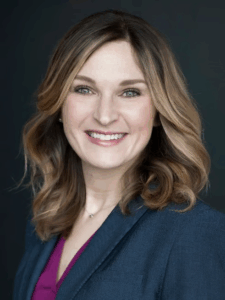Agribusiness leader shares insights from legislative session

Business Record Staff Jun 12, 2025 | 11:43 am
4 min read time
875 wordsAg and Environment, All Latest News, Government Policy and LawNew Agribusiness Association of Iowa CEO Julie Kenney sat down with the Business Record this week to talk about her new position, the association and its top priorities. She spoke about Grain Indemnity Fund modernization, workforce, support for Highway 5/65 and the need for regulatory consistency.

More from this conversation will be featured in an upcoming issue of the Business Record.
Kenney’s responses have been lightly edited for length and clarity.
How did the legislative session go? Did you see some goals being met, or some progress toward goals?
Yes, there were some things that our members advocated for that, with the support of the Legislature, the governor signed into law. This one’s kind of in the weeds, but the Grain Indemnity Fund was a big deal to our members, and that’s all about how do you make sure that if a grain dealer or grain warehouse goes out of business that the farmers are protected? The fund existed but it hadn’t been modernized for 30 or 40 years.
We felt like it needed to be modernized, but there were very differing viewpoints of the how. Everybody agreed on what needed to be done; the how, as it often does in the legislative process, gets interesting. Both chambers finally passed a bill and the governor signed it into law. Now we’re working with Iowa Department of Agriculture and Land Stewardship to implement that, which impacts our members who handle grain and are licensed grain dealers. That’s one that we were very involved in, because it’s at the core of a lot of the businesses that we represent. They’re intimately involved in that.
There are a number of transportation issues that impact our members and workforce is a challenge. When they’re hauling fertilizer and other materials, they have to have a hazmat endorsement on their CDL. Sometimes there are employees that are 18, 19, 20 years old who are perfectly capable of doing this, but they were not able to get a hazmat endorsement on their CDL. The Legislature passed that bill and the governor signed it, so now 18- to 21-year-olds can transport fertilizers and other hazardous materials with a CDL and hazmat training. It’s not going to fix our workforce challenges, but it’s always a pinch in the spring when they’re trying to get fertilizer on. So if we can broaden that pool of people who can get that endorsement, do that training, meet that regulatory requirement – it can help from a workforce standpoint. So we appreciated them doing that.
From your [audience] members’ perspective, they’re probably interested in the Highway 5/65, bypass. They really want that to be an interstate and when we think about it from an ag perspective, there’s slow moving vehicles on there, there’s heavy vehicles on there. We want to make sure that safety is protected in all of that. I think that’s a great example of collaboration and partnership. It may have taken 20 years, but at the bill signing, you saw the Greater Des Moines Partnership and the agribusiness association in the same room supporting the same bill and a path forward that makes sense for ag and makes sense for what they’re trying to do for economic development, so I think that was a great outcome.
Are there any other topics that are top of mind going into the next legislative session?
I think we’re always looking at tax policy. Obviously they didn’t get the property tax reform bill done, so we’ll be interested in that.
What is the association’s take on that?
Our members are huge property tax payers. And again, a lot of those rural communities are supported by the tax base that our members pay so much into, and I think most of our members understand that that’s a responsibility. If there’s reform in that system, we want to have a seat at the table and make sure that it makes sense. We’ll be watching that one very carefully and seeing how that works.
There is some work that we did this last session that we’ll be working on, again, to make sure that there’s uniformity across counties and how certain things are assessed. There are examples where certain types of equipment are assessed on property tax assessments by one county assessor and then the next county assessor, it may not be. That can be challenging from our members’ perspective; oftentimes they work across many counties. They’re looking for certainty in how you make capital investments, and where should you make capital investments? And if there are discrepancies amongst county assessors, that gets really difficult. When there are instances like that, then we look to the Legislature to try to create some kind of consistency so that we’re not having to make decisions based on that.
We don’t want to make investment decisions based on investing in this county versus this county because of how things are assessed. We don’t want to be making business investment decisions based on differing property tax policies. We also don’t want to go through the process of appealing an assessment in one county versus this county. We work to create the business environment that our members can have some certainty when making investment decisions and continue doing the good things that they’re doing.










